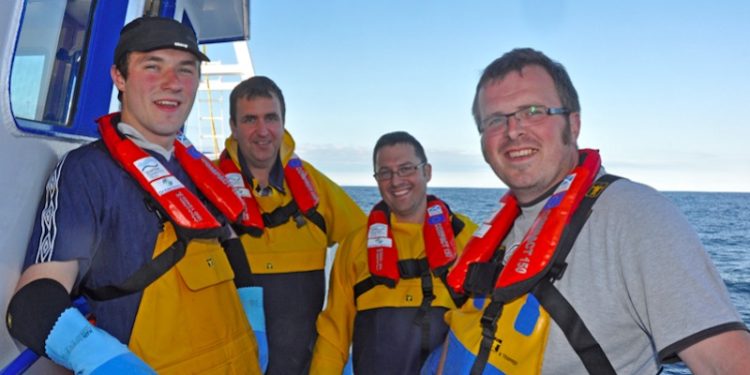Thirteen people who drowned in 2017 might be alive today had they been wearing a lifejacket or buoyancy aid, according to the findings of this year’s Casualty Review Panel. The panel, which includes the SFF’s Derek Cardno, meets annually to discuss the previous year’s appropriate maritime fatalities and whether those who died might have survived had they been wearing a lifejacket.
Wearing a lifejacket or buoyancy aid appropriate to your activity greatly improves your chances of surviving the shock of entering cold water. The panel also advise on other measures which might increase survivability. This year they looked at 27 fatalities and of these 13 might have been saved had these individuals been wearing lifejackets.
People who have been drinking alcohol are more likely to be involved in a fatal accident. In 2017 14 of the 27 fatalities had been drinking – accessing boats in harbour was a particular issue. Over recent years many harbours have introduced lifejacket lockers so people using tenders can store lifejackets securely while they are ashore, and the panel strongly recommended that boat users consider using them.
Carrying a means of raising the alarm and knowing how and when to use it is vital in an emergency, making a real difference in survivability rates. In 2017, two people’s lives might have been saved had they been carrying a means of communication to tell the Coastguard where to search.
In particular the panel recommended:
Carrying a vhf DSC radio and knowing how to use it to contact the Coastguard or other vessels
Carrying a Personal Location Beacon or Emergency Position Indicating Radio Beacon will help rescuers to locate you and even if you’re unconscious the alarm will be raised.
Downloading the RYA SafeTrx app to your phone and using it in an emergency could make all the difference.
The Casualty Review Panel comprises representatives from the Angling Trust, RNLI, Royal Yachting Association, Marine Accident Investigation Branch, Maritime and Coastguard Agency, National Water Safety Forum, British Canoe Union, the lifejacket industry, Scottish Fishermen’s Federation and University of Portsmouth.
The panel uses data supplied from Coastguard and MAIB databases and therefore covers mostly coastal incidents.









